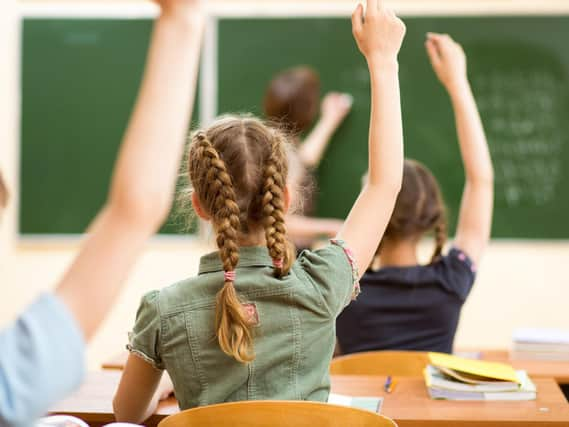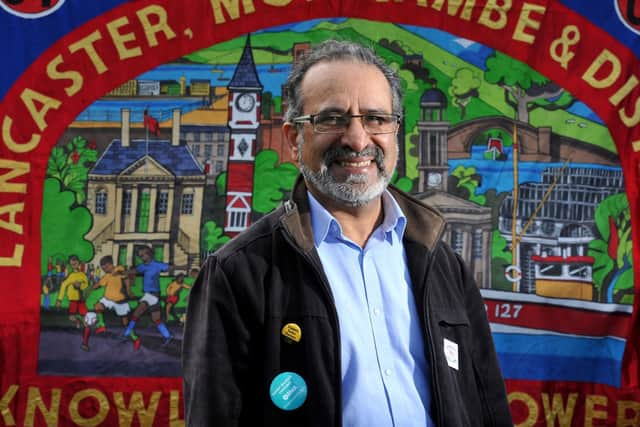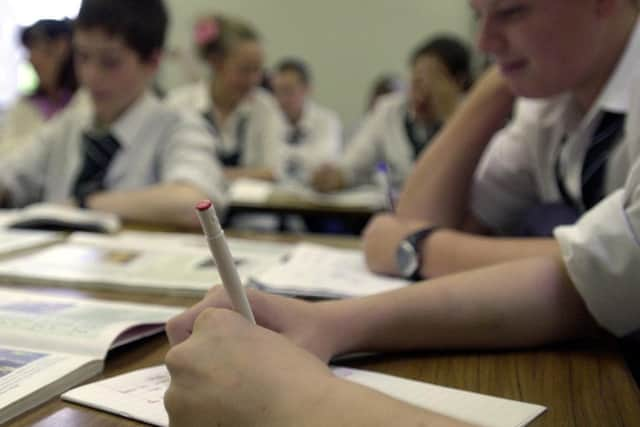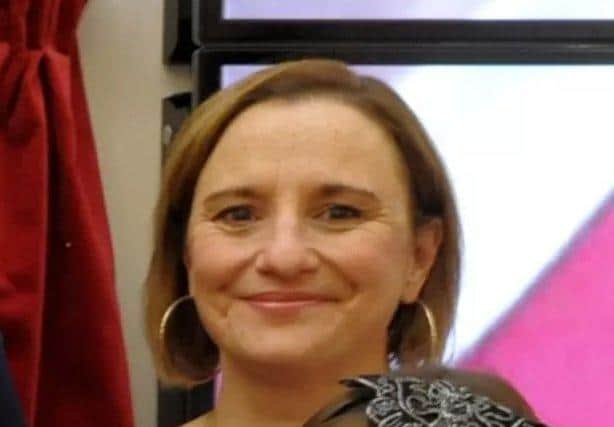Teachers in Lancaster and Morecambe say June 1 return to school date is 'absolutely reckless'


Teaching staff in Lancaster and Morecambe have described the government’s plan to send children back to school on June 1 as “absolutely reckless”.
Many parents have also expressed concern over the plans.
One Morecambe headteacher said schools would not be able to make it work “without severely compromising guidance on personal safety”.


Advertisement
Hide AdAdvertisement
Hide AdOn May 10, Prime Minister Boris Johnson set out plans to ease the coronavirus lockdown after schools closed to all but children of key workers at the end of March.
The proposals are to return reception, year 1 and year 6 pupils to school from June 1, but there are no plans for secondary or higher education establisments to re-open.
Other primary school year groups could return in mid-June, but teaching unions said the worst outcome of any wider re-opening of schools is a second spike of the Covid-19 infection, which has been connected to more than 30,000 deaths in the UK.
The proposals have come under fire from major unions who represent staff working in the education sector - including the TUC, GMB, NAHT, NASUWT, NEU and UNISON.


Advertisement
Hide AdAdvertisement
Hide AdAnd more than 450,000 parents have signed a petition on Change.org demanding they have the choice to keep their kids away from school when they re-open.
It is understood that parents would not be penalised if they chose not to send their children back to school.
The majority of 49,000 NEU members - 92 per cent - said they did not support a wider re-opening of schools from June 1.
Sam Ud-din, Lancaster and Morecambe District Secretary for the National Education Union (NEU) said: “On Sunday our Prime Minister told us of his plan to ease ‘lockdown’.


Advertisement
Hide AdAdvertisement
Hide Ad“On Monday we were given some details – and his Chancellor also told us of plans to extend the current ‘furloughing scheme’ to the end of July unchanged, and further to the end October with changes.
“As a union, we have rejected the suggestion that some primary schools may return from June 1 as absolutely reckless.
“To be clear, we still want children to be able to return to quality education in our schools, taught by qualified teachers, supported by high quality support staff – but only when it is safe for them to do so.”
Siobhan Collingwood, headteacher at Morecambe Bay Primary School, said there needs to be individual responses from schools because they’ve each got a different set of circumstances.
Advertisement
Hide AdAdvertisement
Hide AdShe said that many schools would not be able to make it work “without severely compromising guidance on personal safety”.
She said: “One thing that seemed to dismay everybody was the inclusion of our very young children, who are least able to take on board the restrictions, and most in need of personal help and care.
“Falling over, crying, going to the toilet - all of these are issues for staff, who would be directly exposed to very close contact with children.
“Schools will need to strip out soft furnishings, toys, and restrict movement, which would create more anxiety for the youngest ones.”
Advertisement
Hide AdAdvertisement
Hide AdShe said that the plans would mean half of her school would return on June 1, and there will be issues with staffing, space, and even issues such as hayfever season.
She said: “The final bit is you bring everyone in a month before the holidays, and there’ll be no hope of social distancing then and no hope of guaranteeing everyone’s safety.
"This is not what any of us want, we want to be able to return, but I’m just not convinced by the arguments.
“I’ve had comments from teachers up and down the country and every one of them are full of anxiety, and really scared of the situation we’re being put in.
Advertisement
Hide AdAdvertisement
Hide Ad“We want to be back to normal, but you can’t just close your eyes and wish these things away.”
Unions in the education sector have set out key principles and tests for the reopening of schools in England to ensure the safety of children, parents, staff and the communities they serve.
Research from Norwich Medical School, published on May 7, found that the closure of school settings was very important in reducing incidences of Covid-19.
Humboldt-Universität in Berlin found that schools turn out to be a major hub for the progression of infection and The Journal of Infection said, based on studies in China, that “SARS-CoV-2 is transmitted quickly in the form of family clusters.
Advertisement
Hide AdAdvertisement
Hide AdKevin Courtney, joint General Secretary of the National Education Union, said: "These studies raise real concerns about the impact that a wider re-opening of schools would have on the rate of Covid-19 transmission and its incidence in families.
"It is vital that the Government address these studies before making proposals on further re-opening of schools."
On May 8, The Trades Union Council (TUC) published a joint statement on behalf of unions with members in the education sector, outlining the measures needed for the safe reopening of schools.
The statement from GMB, NAHT, NASUWT, NEU, UNISON and Unite set out key principles and tests for the reopening of schools in England to ensure the safety of children, parents, staff
and the communities they serve.
The principles and tests include:
Advertisement
Hide AdAdvertisement
Hide Ad Safety and welfare of pupils and staff as the paramount principle
No increase in pupil numbers until full rollout of a national test and trace scheme
A national Covid-19 education taskforce with government, unions and education stakeholders to agree statutory guidance for safe reopening of schools
Consideration of the specific needs of vulnerable students and families facing economic disadvantage
Advertisement
Hide AdAdvertisement
Hide Ad Additional resources for enhanced school cleaning, PPE and risk assessments
Local autonomy to close schools where testing indicates clusters of new Covid-19 cases
The NEU went into more detail with 10 specific points in respect of any proposed general return for schools, colleges and educational settings - a return should only be possible when six
conditions are met:
1 only when a general return does not risk over-whelming the NHS and key services;
2 only with a sustained fall in death rate;
3 only with a sustained fall in infection rate;
Advertisement
Hide AdAdvertisement
Hide Ad4 only where there is adequate PPE for schools and college staff;
5 only where there is an adequate testing and contact-tracing regime for school and college staff; and
6 only where there is no risk of a second “wave” or peak – which is good for no-one but very damaging in education where pupils will suffer from the flux of being sent home again and
having multiple transitions back to in-school or college learning, and potentially longer out of the classroom than in a delayed reopening.
Advertisement
Hide AdAdvertisement
Hide AdAssuming these 6 conditions are in place, a return at individual school, college or educational setting level should take place:
7 only when a thorough risk assessment has been conducted, and provided to all staff;
8 only with a deep clean;
9 only with a clear practical social distancing policy/procedure in place. In this regard, as social distancing in full schools or colleges is at best impractical, if not impossible, the expectation is that schools or colleges will have far fewer pupils/students in them than the full roll at any given time; and
10 only by agreement with the Health and Safety Executive.
Commenting on the Prime Minister’s announcement on changes to lockdown, Dr Mary Bousted, Joint General Secretary of the National Education Union, said: “We think that the announcement by the Government that schools may reopen from June 1 with reception and years 1 and 6 is nothing short of reckless.
Advertisement
Hide AdAdvertisement
Hide Ad“Coronavirus continues to ravage communities in the UK and the rate of Covid-19 infection is still far too great for the wider opening of our schools.
“A study published last week by the University of East Anglia suggested that school closures are the single most effective way of suppressing the spread of the virus.
“If schools are to re-open, we need the Government to meet the five tests we have set to keep children, their families and our staff safe.
“There must be much lower numbers of Covid-19 cases, with extensive arrangements for testing and contact tracing to keep it that way. This test has manifestly not been met.
Advertisement
Hide AdAdvertisement
Hide Ad“We must have a national plan for social distancing, hygiene, appropriate PPE and regular testing to ensure our schools and colleges don’t become hot spots for Covid-19.
"This test has manifestly not been met.
“And there must be plans drawn up to protect vulnerable staff, or those who live with vulnerable people, to stop more educators or members of their families dying of this dreadful disease.
“We are supported in this by nearly 400,000 staff and parents who have signed our petition to reopen schools only when it is safe.
"And Parentkind, one of the largest parents’ groups in the UK, back our tests too.
Advertisement
Hide AdAdvertisement
Hide Ad“We have written three letters to the Government for the science around school reopening, to share the modelling it is using and discuss the concerns raised by our five tests.
"We have received no reply.
“If schools are re-opened to blatant breaches of health and safety, we will strongly support our members who take steps to protect their pupils, their colleagues and their families.
"The worst outcome of any wider re-opening of schools is a second spike of Covid-19 infection.
“Our members care deeply about the children they teach – and no-one is more aware of the struggles faced by vulnerable pupils, or those from vulnerable families, than their teachers.
Advertisement
Hide AdAdvertisement
Hide Ad"If schools cannot safely re-open, we need other ways of supporting those children.
"For instance, the better weather gives us a chance for some education to take place outdoors, where children are least likely to pick up infection.
“We urge the Government to follow the example of the Welsh and Scottish governments who have made the decision not to re-open schools at this time.
“Now is the time for Government to listen and do the right thing.”
Advertisement
Hide AdAdvertisement
Hide AdIn Lancaster and Morecambe, Sam Ud-din, said that local members – including headteachers - and schools are very carefully thinking about what to do – and are making the right decisions, rejecting any unsafe return.
He said: "We are heartened by the support of the other unions and also of the NGA – the National Governance Association – who also warn all Governing Bodies that the final decision on whether to invite pupils back will rest with schools and academy trusts.
"Schools should only invite those pupils back when and if their assessment of the risk is that it is safe for both children and staff to do so.
"While school leaders will be beginning to assess options, there is no need to rush into any decisions immediately.
Advertisement
Hide AdAdvertisement
Hide Ad"We expect school leaders to consult with their governing boards who have a role as employers (or in place of employers) and a duty of care to pupils.
"The headteacher (or possibly another executive within a multi academy trust) will need to undertake a full risk assessment before making a decision, and it would be wise for them to
bring that assessment to their governing board. Governing boards, while trusting their professional leaders to carry out that assessment, should test its robustness.
"The assessment will need to be kept under review.
"They also point out to Governors that no parents will be penalised for not sending their children to school and that the absence record will not count against any school.”
Advertisement
Hide AdAdvertisement
Hide Ad"Parents too tell us that they don’t trust this Government to manage reopening.
"People are still contracting Covid-19 and dying from it in high numbers. So, it is not safe for educators, nor our children or our families to send our children back to school at this time, and we will not be doing so.
"Our children will stay at home until it is safe.”
He said that within one hour of Sunday’s announcement 49,000 members of the National Education Union responded to a survey about it and gave a "resounding no" to the Prime Minister's roadmap for wider school reopening.
The survey found that 85 per cent of respondents said they disagreed with Boris Johnson's plans to restart lessons for reception, year 1 and year 6.
Advertisement
Hide AdAdvertisement
Hide Ad92 per cent said they would not feel safe with the proposed wider opening of schools.
Of those with school age children, 89 per cent said they felt it would be unsafe or very unsafe to send their children back to school.
Of those respondents working from home because they have a pre-existing medical condition or are pregnant, 96 per cent said they felt unsafe or very unsafe returning to work.
And 96 per cent of those with a family member living with them who has a pre-existing medical condition or are pregnant thought it would be unsafe or very unsafe for them to return.
Advertisement
Hide AdAdvertisement
Hide Ad92 per cent said the Government must meet the NEU's five tests before schools can re-open.
Dr Mary Bousted added: "The Government must work with the unions to establish a position which gains the confidence of staff in schools.
"Tonight's announcement – so out of step with Scotland and Wales and with its confusion about social distancing – has resulted in 92 per cent of NEU members saying they currently feel a wider opening of schools would be unsafe.
"The Prime Minister describes this as a first sketch of a roadmap but our members think this sketch must urgently be re-drawn."
Advertisement
Hide AdAdvertisement
Hide AdKevin Courtney, the other joint general secretary, said: “It’s welcome that Chris Whitty says there needs to be a debate about teacher safety. This must absolutely also be about teaching
assistant, support staff and parent safety.
"This “debate”, which needs to be based on a production of peer reviewed science, has not started.
"The Government’s laughable, so called “guidance” has not been discussed, debated, tested with us. Or with any education union. It may have been seen by some of the big MATs.
"Therefore there is no guidance that the NEU has agreed to.
"You can not plan without guidance.
"Therefore no planning for an opening can begin.”
Comment Guidelines
National World encourages reader discussion on our stories. User feedback, insights and back-and-forth exchanges add a rich layer of context to reporting. Please review our Community Guidelines before commenting.